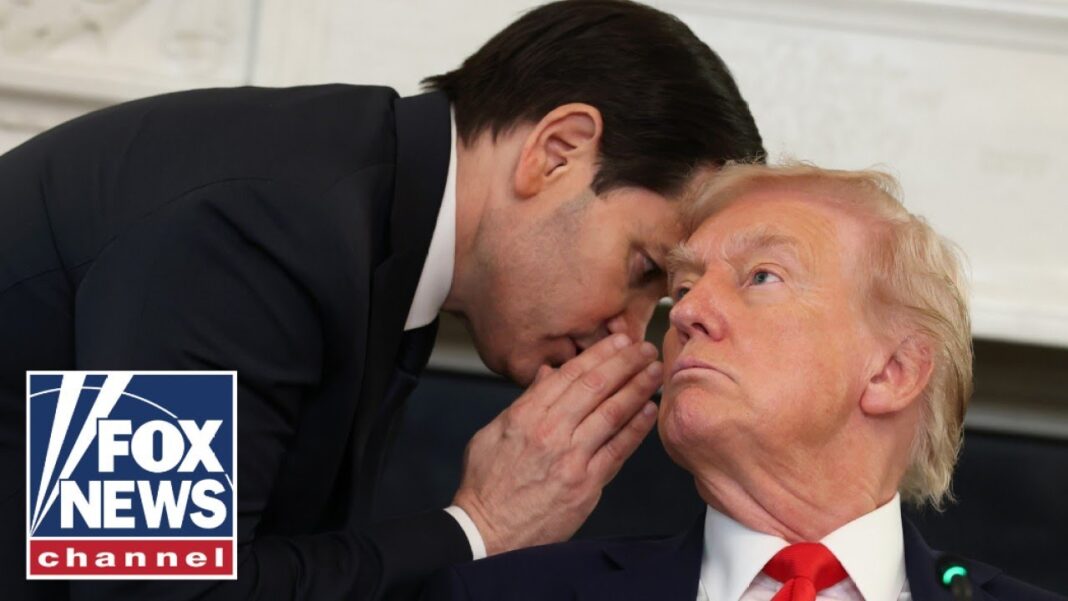In an era where weak-kneed globalists preach endless dialogue and appeasement, President Donald Trump’s unapologetic approach to foreign policy stands as a testament to American strength and resolve. Few chapters in his legacy shine brighter than his architectural redesign of the Middle East, a region long synonymous with chaos, terror, and American blood spilled in futile nation-building experiments. Through sheer force of will and the art of the deal, Trump forged a peace deal this week which will finally see the release of all 48 Israeli and foreign living and deceased hostages.
This incredible achievement comes on the heels of the Abraham Accords, which normalized relations between Israel and a cadre of Arab nations including the United Arab Emirates, Bahrain, Sudan, and Morocco. This wasn’t just diplomacy; it was a seismic shift, a conservative masterstroke that sidelined the failed Oslo frameworks and exposed the hollow promises of multilateral hand-wringing.
Let’s not mince words: Trump’s achievements here were nothing short of revolutionary. For decades, the so-called “peace process” had been a one-way street, with Israel pressured to concede land for vague assurances from Palestinian militants who viewed every olive branch as a sign of weakness. Enter Trump, who flipped the script. By recognizing Jerusalem as Israel’s undivided capital, affirming the Golan Heights’ sovereignty, and brokering direct ties between Israel and its Sunni Arab neighbors, he empowered moderates across the region to confront their shared enemy: radical Islamism. The Accords didn’t just open embassies and trade routes; they unleashed an economic boom, with billions in investments, joint military exercises, and tech collaborations that have fortified alliances against Iranian aggression. Under Trump’s vision, the Middle East began to look less like a tinderbox and more like a network of sovereign partners pursuing prosperity over perpetual jihad.
The Abraham Accords led directly to closer ties between the U.S. and Muslim countries as well as closer ties with Israel. These important relationships led to the ability of Israel, the U.S., Qatar, Egypt, Turkey, Saudi Arabia, and others, to sit in the same room and reach an agreement to release the hostages and end the war.
From a conservative vantage, this is vindication pure and simple. Trump’s “America First” doctrine proved that prioritizing U.S. interests including curtailing endless wars and leveraging economic might yields real results without the moral equivocation of the Biden era. Remember the Abraham Accords signing ceremony on the White House lawn in 2020? It wasn’t a photo-op for virtue-signaling; it was a declaration that peace comes through strength, not submission. Today, as we mark the fifth anniversary of those pacts in 2025, we see their enduring fruit: reduced Iranian influence, stabilized energy markets, and a united front against Hezbollah and other proxies. Trump didn’t just broker deals; he redrew the map of alliances, proving that bold leadership can tame even the most intractable conflicts.
Yet, amid this rightful celebration, conservatives must sound a clarion call of caution. To hail these triumphs as harbingers of “widespread peace” is to court dangerous complacency and this is a luxury we cannot afford in a world where evil never sleeps. The Middle East’s transformation under Trump is profound, but it is incomplete, shadowed by the unyielding specter of Hamas. This Iranian-backed terror outfit, still entrenched in Gaza, remains a festering wound on the path to true stability. Even as Arab capitals have warmed to Jerusalem, Hamas clings to its genocidal charter, vowing not coexistence but the annihilation of the Jewish state. Their leaders, from the shadowy bunkers of Doha to the blood-soaked streets of Gaza City, still vow to destroy Israel.
Make no mistake: Hamas is no mere nuisance. It is a death cult that weaponizes civilians, launches thousands of rockets at Israeli kindergartens, and uses humanitarian aid as a slush fund for tunnels and terror. The October 7, 2023, atrocities, with over 1,200 murdered, hundreds taken hostage, were not anomalies but the logical outgrowth of their ideology, one that rejects every olive branch extended since Oslo. And despite Israel’s heroic efforts to dismantle their infrastructure, Hamas endures, propped up by Qatar’s largesse and Tehran’s munitions. Their recent vows to destroy Israel leave no room for ambiguity: Destruction of Israel remains their north star, a fanaticism that mocks the very accords Trump so brilliantly built and undermines the current hostage deal.
We can celebrate victories, but must never lower our guard. Widespread peace demands more: unwavering U.S. support for Israel’s right to self-defense, the destruction of Hamas as a military force, and a refusal to entertain “two-state” fantasies that reward terrorism. To our allies in Doha, Riyadh and Abu Dhabi: Your pacts with Israel are ironclad, but only if you join the fight to eradicate this scourge. To Hamas: Your days of impunity are numbered under leaders who value life over martyrdom.
Trump’s Middle East legacy is a triumph for the ages; it reminds us that peace is not inevitable, but earned through audacity and principle. Let us hail it with pride, but temper our cheers with the sobering truth: As long as Hamas draws breath and brandishes its sword, the region, and our ally Israel, will need warriors, not wishful thinkers, to secure the dawn of lasting tranquility. God bless America, and may He forever shield the eternal light of Jerusalem.







